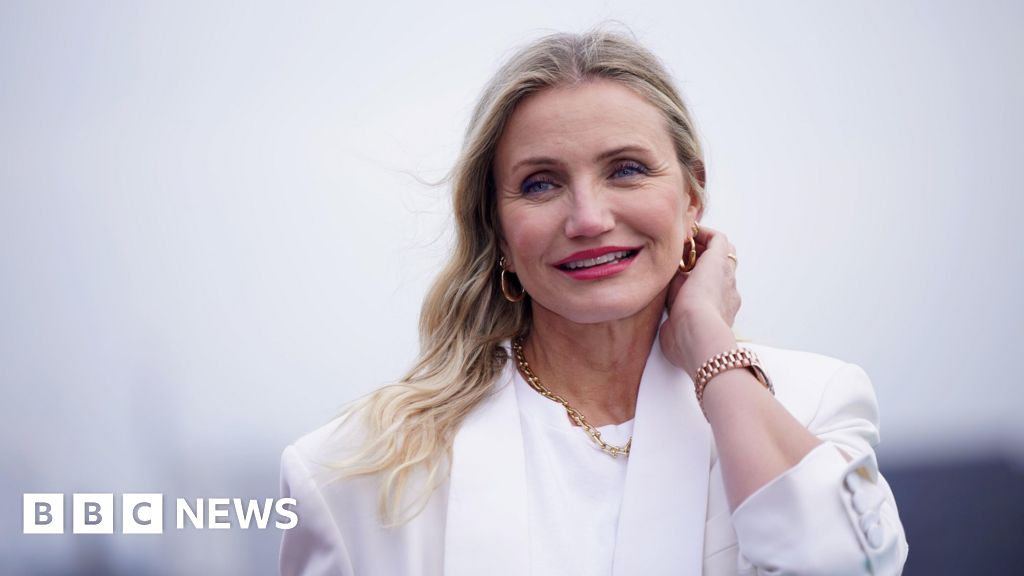Director M. Night Shyamalan went on trial on Tuesday over allegations that he copied from an independent film to make the Apple TV+ show “Servant.”
Francesca Gregorini, an Italian-born director, is suing Shyamalan and Apple for $81 million, alleging that the show stole key elements from her 2013 movie, “The Truth About Emanuel.”
Her attorney, Patrick Arenz, showed jurors clips of both projects during his opening statement on Tuesday in federal court in Riverside, Calif. He argued that both depict a delusional mother who cares for a doll as though it is a real baby, and a nanny who is complicit in the delusion.
“This is a simple case,” Arenz told the jury. “There would be no ‘Servant’ without ‘Emanuel.'”
Shyamalan sat behind the defense attorneys, alongside producer Taylor Latham and Matt Cherniss, the head of programming at Apple TV+. Tony Basgallop, the British writer who created the series, sat at the defense counsel table, while Gregorini sat with her lawyers at the plaintiffs’ table.
When it was the defense’s turn, attorney Brittany Amadi argued that Basgallop began developing the show years before “The Truth About Emanuel” was released, and that those involved with the show never drew on the film.
“Ms. Gregorini is seeking a windfall here,” Amadi said. “She’s seeking $81 million for work she didn’t do. The truth is the creators of ‘Servant’ do not owe anything to Ms. Gregorini.”
Gregorini sued in January 2020, shortly after “Servant” debuted on the platform. A federal judge initially threw out the case a few months later, but the 9th Circuit Court of Appeals revived it in 2022, finding a genuine dispute over whether the two works are “substantially similar.” Judge Sunshine Sykes denied Apple’s motion for summary judgment in November, ordering that the suit would have to be settled by a jury.
Shyamalan is expected to testify, along with other creators of the show. The jurors will begin the case by watching “The Truth About Emanuel” and the first three episodes of “Servant” in their entirety.
“The Truth About Emanuel” starred Jessica Biel and Kaya Scodelario, and played at the Sundance Film Festival. It did not make money. The defense showed evidence that the film grossed only $226 in Los Angeles, and just $9 — from one viewer — in Philadelphia.
Arenz noted that most independent films lose money, but the point was to gain exposure for Gregorini’s directing career. She went to to direct TV episodes, including on “Killing Eve” and “Electric Dreams.”
To prove copyright infringement, the plaintiff must show both substantial similarity and that the defendant had access to the infringed work. Arenz said that “Emanuel” was widely available on platforms such as iTunes, and that Max Aronson, an Apple TV executive, was aware of Gregorini’s work and had a link to “Emanuel” in his inbox.
He also argued that Basgallop’s early scripts feature “vulgar and vile” elements, including rape, incest and violent pornography, which he said explained why they failed to attract interest. It was only years later, after the release of “Emanuel,” he argued, that Basgallop incorporated the narrative involving the delusional mother and the doll.
“The defendants would not have made one dime of profit without the original and unique elements of ‘Emanuel,'” he argued.
Amadi countered that the two projects have numerous differences, starting with their genres.
“‘Servant’ is a supernatural thriller,” she said. “‘Emanuel’ is an emotional coming-of-age drama.”
She also noted that “reborn dolls” exist as therapeutic aids to help patients deal with grief, and that the show’s creators were free to draw on real life.
“Ms. Gregorini did not invent the idea of a reborn doll,” she said. “You can’t own a fact, and you can’t own an idea.”
Both attorneys also sought to emphasize their clients’ humble origins, while playing up the other side’s relative clout. Amadi noted that Shyamalan was born in India and raised in Philadelphia without any entertainment industry connections. She also noted that Gregorini’s father was an “Italian count,” her mother was a Bond girl, her stepfather is Ringo Starr, and that “Emanuel” was partly financed by “a German princess,” Tatiana von Fürstenberg.
Arenz said that Gregorini had an “unconventional upbringing,” that her parents abused drugs and alcohol, and that she overcame those difficulties through storytelling. He also noted that she chose to sue “the biggest names in Hollywood,” and said he expected Apple’s defense lawyers to be “smooth.”
“We’re talking about Hollywood elite here,” he said.
Amadi accused the plaintiff’s lawyer of “mudslinging” when he referenced the “disgusting and disturbing” aspects of Basgallop’s early scripts. After the jury was excused, she asked the judge to bar him from raising those elements, saying it would prejudice the jurors. Arenz objected, saying the scripts had been approved as exhibits without opposition. Sykes said she would deal with any objections as they arise.
The trial is expected to last about two weeks.

 By Variety | Created at 2025-01-14 23:05:33 | Updated at 2025-01-18 07:48:16
3 days ago
By Variety | Created at 2025-01-14 23:05:33 | Updated at 2025-01-18 07:48:16
3 days ago








